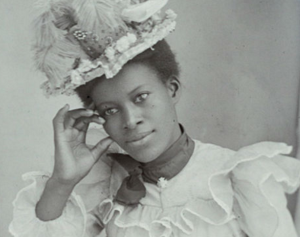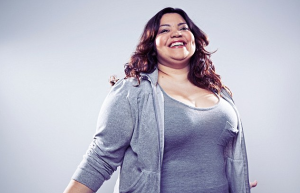My friend raises a brow skeptically.
“So you’ve been together for years, but you’ve stopped having sex?” he asks me. “Aren’t you worried?”
“Worried about what?” I shrug.
To many of the people I talk to, the idea that two people in a long term relationship would agree to pause their physical relationship – perhaps indefinitely – is a totally scary concept. Shouldn’t we see a therapist? Aren’t we destroying our marriage?
It’s been a couple years now since we decided that sex wasn’t really in the cards. But we’re still together, and we’re still just as happy, if not more.
It’s not a big deal for us. But there are so many societal messages that insist that any relationship that lacks sex is broken, defective, or doomed.
This encourages people to force a sexual attraction that may not be there, engage in a physical relationship that isn’t working, or to entirely discard a relationship that may have immense value in other ways, rather than simply focusing on what works and setting aside what doesn’t.
My physical relationship with my spouse wasn’t working – my partner had become very sick over the years due to chronic illness, and sex had begun to feel like an exhausting chore that made both of us unhappy.
That is, until we had the radical idea: What if we just…stopped? Maybe for now, or maybe forever?
So we did. And, guess what, the sky didn’t fall, and the world didn’t end.
We focused on the other emotionally intimate and romantic aspects of our relationship, and we were a hell of a lot less stressed as a result.
While this might not work for everyone, we quickly realized that this was what worked for us – despite neither of us identifying as asexual.
All the scary messages about needing to schedule time for sex or see a therapist had turned out to be empty threats. Our separation was in no way inevitable, as so many people had warned us.
We’re doing what works for us. And we’re doing just fine, thanks!
This kind of “sex or nothing” panic is fueled by the oppressive idea that sexual intimacy is the ultimate purpose of every romantic relationship – which just isn’t true for everyone, even for people who do experience sexual attraction.
It was an epiphany and a relief: We didn’t need sex to enjoy cuddling up on the couch and watching hours of Law & Order.
We didn’t need sex to create a loving home together, to support each other emotionally. We still loved each other, and there were millions of other ways to express that to one another.
The idea that sex wasn’t necessary for a fulfilling romantic relationship turned everything I thought I knew on its head. I always reserved this line of thinking for my asexual friends – I’d never once considered it might be true for me as well.
Nowadays, I’m embracing the spectrum that sexual attraction and behavior exists on, understanding that even folks who do experience sexual attraction – people like myself – may also have a lot of valid reasons for pursuing romantic relationships that don’t necessitate sex.
Here are four of my own reasons for doing just that.
1. It’s Not the Be All, End All of Relationships for Me
For a long time, I thought sexual intimacy was the purpose of relationships. But, over time, I realized there was so much more to my relationships than sex.
It’s having someone to come home to at the end of the day. It’s the emotional support that gets you through tough times, and the adventures you take together.
My love for my partner didn’t rely on whether or not we had sex.
It was the late night pep talks when we were struggling, the Netflix marathons, the cozy nights cuddling and drinking tea, and trying new restaurants downtown, and wandering around the farmer’s market on a Saturday morning, and the comfort of sleeping next to someone at night.
That’s what mattered most.
Some folks think sex is an important part of their relationship. But what is most important to me – the time we spend together, the emotional bond we share – has nothing to do with how sexual we are, and how often.
2. I Recognize That Things Like Disability and Trauma Can Complicate Sex
The big reason my partner and I agreed to pause our physical relationship was my partner’s disabilities. They struggle with chronic pain and fatigue, as well as depression and anxiety, which completely destroyed their sex drive.
I, also, struggle with mental illness and trauma, which can often interfere with my desire and my ability to be grounded and present. And as someone who’s transgender, my dysphoria can make it impossible to feel safe in some sexual encounters.
This doesn’t mean that I’m broken. It just means that I might need to reassess what works for me and what doesn’t.
No one ever told me that, sometimes, disability and trauma history can interfere with your sex life – but it can and absolutely does.
For some folks, working with a clinician (like a sex therapist, for example) can work wonders. But for some of us, abstaining from sex to focus on our healing can help take the pressure off of us, and refocus our relationships on the emotional intimacy we need.
There’s an insistence that every “healthy” relationship includes sex. But sometimes, the healthiest thing we can do for ourselves is to take a break – or set it aside altogether – to focus on ourselves and the types of intimacy that support us most.
3. I Know Intimacy Can Exist Without Sex
There’s absolutely nothing wrong with having sex with someone to feel close to them, and to build on your emotional connection.
There’s also nothing wrong with choosing to focus on other ways to build that connection because, for whatever reason, having sex isn’t a priority for you.
This is mind-boggling for some people for whom sex is a major priority in their romantic relationships. But many of these same people will quickly and defensively correct me when I ask if sex is the only way they feel emotionally bonded to their partner.
Emotional intimacy and sexual intimacy can overlap, but they’re not always one in the same.
And that emotional connection is nurtured in thousands of different ways – and exists at all times, not just when we’re getting busy.
I can be emotionally satisfied and feel loved, even when I’m not having sex with someone. Sexual intimacy can help sustain romantic love for some, but that’s not a hard and fast rule for everyone.
And for me, romance can exist all on its own.
4. There Are So Many Valid Alternatives to Sexual, Monogamous Relationships
When my partner and I decided to focus on emotional intimacy rather than sexual intimacy, we came up against some big questions.
We weren’t necessarily asexual – we still sometimes experienced sexual desire, and even if we didn’t, it was always possible that we might in the future.
When society tells you that the best way to build a relationship is for it to be both sexual and monogamous, you might not even consider that there are actually countless other possibilities for you and your partner(s)!
For my partner and I, we decided to open up our relationship, agreeing that if the other wanted to seek out a sexual, or even romantic, relationship with someone else, they were welcome to, as long as the line of communication remained open as well.
We don’t often pursue other people, but we support one another when we do.
This took the pressure off of expecting each other to satisfy our every need, and freed us up to arrange our romantic and sexual lives in a way that worked best for us.
I know other folks who simply channel their sexual energy into masturbation – sometimes with their partner, sometimes alone – or they find a community, like at play parties or sex dungeons, where they explore their sexuality in closed and safe settings.
Some people find that they just don’t need sex after all, either temporarily or indefinitely, going on to identify as graysexual or asexual. Recently, graysexual has felt like a pretty good label for me, but I’m not particularly worried about what to call myself.
All of these possibilities (and more!) are valid alternatives, and it’s all about opening up to find what works best for you.
Being honest with your partner (and even looping in a couples’ counselor or sex therapist) can help you arrange your relationship in a way that everyone’s needs can be met, sexual or otherwise.
***
I didn’t always feel this way about sex. I used to think that, without sex, my relationship would fail. And I became terrified that my relationship was failing because we weren’t having sex anymore.
My partner and I became so unhappy as we tried to figure out how to “fix” our problem.
Our sexual desire never seemed to align, and the pressure to perform only made this worse. It began to feel like a requirement instead of something we wanted to do – and we soon realized it was the expectation of sex that made us unhappy, not the lack of sex itself.
When we stopped treating sex like a requirement and focused on the aspects of our relationship that made us feel fulfilled, it no longer felt like a crisis or a failure.
This left me with some big questions: What if sex isn’t always right for every relationship? What if pausing or setting aside physical intimacy is just a natural (and totally benign!) part of our evolution as a couple? What if nothing is actually wrong with us?
And most importantly, does it matter?
I’ve come to believe that if we’re happy, that’s really what matters most.
[do_widget id=’text-101′]
Noah Redd is a contributing writer at Everyday Feminism, and a genderqueer, kinky, non-monogamous, graysexual writer with a knack for making things weird. In addition to kicking the heterocispatriarchy where it hurts, he writes about relationships, sexuality, and that fetish that makes you blush. When he isn’t doing that, he’s watching YouTube videos of dancing birds who are probably too good for this world. You can read his articles here.
Search our 3000+ articles!
Read our articles about:
Our online racial justice training
Used by hundreds of universities, non-profits, and businesses.
Click to learn more
Most Read Articles
- « Previous
- 1
- …
- 30
- 31
- 32




















